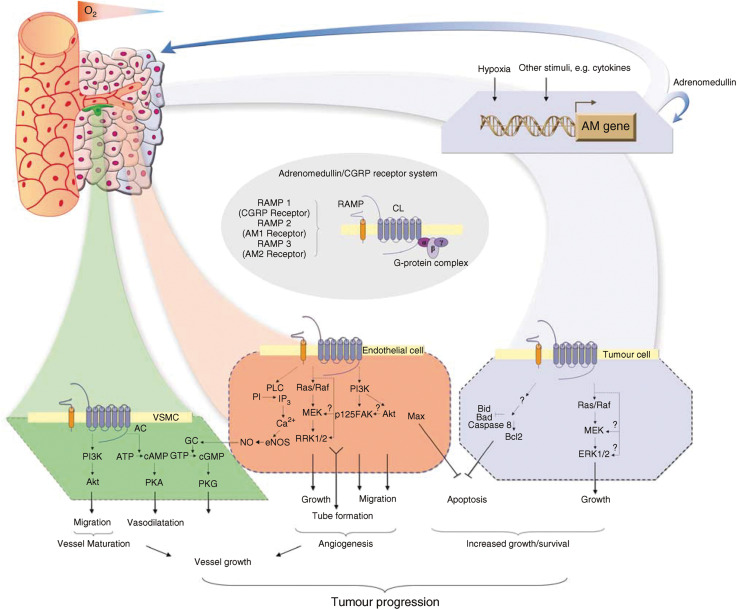Figure 1.
Role of adrenomedullin in tumour progression. The role of hypoxia and inflammatory cytokines in regulation of AM expression and secretion by tumour cells in vivo has been suggested. Adrenomedullin promotes formation of xenografted tumours by stimulation of autocrine growth and survival of tumour cells, and through paracrine effects on surrounding vessels. Possible intracellular signalling mechanisms underlying effects of AM in tumour microenvironment (in endothelial, vascular smooth muscle (VSMC) and tumour cells) suggest its potential role in tumorigenesis, resistance to chemotherapy and tumour progression. Based on McLatchie et al (1998), Shichiri et al (1999), Hinson et al (2000), Oehler et al (2001), Martinez et al (2002), Poyner et al (2002), Kim et al (2003) and Iwase et al (2005). AC=adenylate cyclase; GC=guanylate cyclase; PKA=protein kinase A, PKG=protein kinase G, PLC=phospholipase C, MEK=mitogen-activated protein kinase kinase; ERK=extracellular signal-regulated kinase (also termed MAPK).

